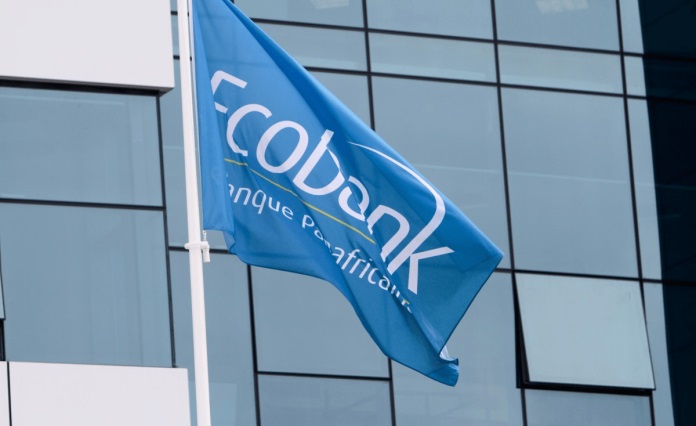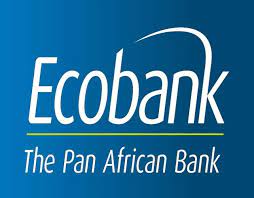Business
2023 9M: Ecobank sets to surpass 2022 performance, while Nigerian business continues to trail.

2023 9M: Ecobank sets to surpass 2022 performance, while Nigerian business continues to trail.
Ecobank Transnational Incorporated has recorded a commendable 9-month performance and is likely to beat its 2022 5-year record performance.
In addition to its commendable overall performance, the bank’s share price presents a compelling investment opportunity. It is attractively priced, boasting a lower price-to-earnings ratio compared to other sectors.
Despite these positive indicators, its Nigerian business is still trailing behind other geographic regions in performance, although the 9M 2023 results indicate it will likely outperform its 2022 results.
Ecobank Transnational Incorporated (ETI) has disclosed a significant 55% year-on-year increase in profit before tax, amounting to N262.171 billion, as indicated in the audited financial statements seen by Nairametrics.
This figure not only reflects a remarkable increase but is also noteworthy as it stands 14% higher than the full-year figure of N230.55 billion recorded in 2022, which itself represented a 5-year high.
The banking group ascribed this growth to a combination of increased revenue and enhanced cost efficiency. CEO Jeremy Awori provided insights into the results, stating,
“Ecobank generated profit before tax of $450 million for the nine months to September, an increase of 55% in constant currency from the prior year.
Moreover, we delivered profits attributable to ETI shareholders of $224 million, which translated to a return on tangible shareholders’ equity of 25.6% on the back of strong revenue growth of 34% in constant currency and an improved cost-to-income ratio of 53.7%.”
A cursory review of the financial statements shows that in the first nine months of 2023, operating income surged by 12%, or 55%, in constant currency to $1.518 billion, or N884.618 billion.
This figure not only signifies noteworthy year-on-year growth but also surpassed the full-year 5-year record of N794.860 billion set in 2022.
On the other hand, while the improved cost-to-income ratio of 53.7% is said to have played a significant role in bolstering the impressive bottom, a comparative analysis with other banks such as UBA, FBNH, Stanbic IBTC, Zenith, etc. reveals that it is relatively high.
Despite the fact that revenue grew faster than operating expenses, the notable increase in the latter might have played a role in the bank’s relatively high cost-to-income ratio.
The bank’s operating expenses, driven by the growth in staff expenses and other operating costs, surged by 48% year-on-year to N475.353 billion. This figure exceeded even the 2022 full-year N448.441 billion.
We expect the bank to continue enhancing its cost-containment strategies to further reduce its cost-to-income ratio.
In addition to the significant rise in net revenue and enhanced cost efficiency contributing to the impressive bottom line, another critical success factor noted is the group’s widespread geographic diversification in alleviating challenges specific to regions.
This advantage has proven instrumental in mitigating challenges unique to specific regions, as highlighted in the banking group’s 9-month result statement:
“Group profit before tax increased by 12% or 55% at constant currency to $450 million, driven by positive operating leverage (revenue growth higher than expense growth) and despite the exposure to Government of Ghana (GoG) Eurobonds substantially increasing impairment charges on other financial assets and continued hyperinflation in Zimbabwe and South Sudan creating net monetary losses.
The geographical diversification advantage is evident in Nigeria, as its business in the country lags behind the financial performance of the banking group’s other geographic regions.
In the 2022 FY, the Nigerian business accounted for only 12.85% ($239 million) of the group’s net revenue. This trend continued in the 9M period of 2023, with the Nigerian business contributing 12.52% ($190 million) to the group’s net revenue.
Also, a breakdown of the PBT shows that Nigeria’s business contributed only 5.56% ($25 million), which is 80.18% of its 2022 full-year contribution, while Francophone West Africa (UEMOA), Anglophone West Africa (AWA), and Central Eastern and Southern Africa (CESA) contributed 52%, 36%, and 49%, respectively.
Total assets and stock performanceDespite the fluctuating performance in certain regions, the Pan African lender remains a formidable presence as one of the largest banking groups on the continent, outside South Africa, with total assets up $26.644 billion, or N20.697 trillion, as of September 30, 2023, and subsidiaries spanning 33 sub-Saharan African countries (SSA).
Following its impressive performance in 2022, Ecobank paid a final dividend of $0.11 cents per share, representing a 5.6% payout.
Over the last five years, the bank has distributed dividends in two of those years. Given the bank’s potential to exceed its 2022 profit after tax, it is expected that the banking group should increase its dividend per share in contrast to 2022.
This potential increase in dividends would contribute to enhancing the current dividend yield, which stands at 3.29%, and help strengthen investor confidence.
Last year, the stock rallied to a 21.84% YTD gain, outperforming the NG Banks industry and NGXASI. This year, the year-to-date gain has surged to an impressive 61.32% as of the close of trading on Monday, December 4, 2023.
This substantial gain underscores the positive investor sentiment and market confidence in Ecobank’s ongoing financial success and growth prospects.
Focus on the Nigerian region: The Nigerian market is the largest in Sub-Saharan Africa and should hold future potential for the group. The need to focus on growing revenue, cost efficiency, and digital payment systems should be highly prioritized.
The region’s comparatively poor performance is, in part, influenced by several factors, including low net revenue, elevated expenses, and an increase in net impairment charges on loans.Net revenues increased 3%, or 37%, in constant currency to $190 million, benefiting primarily from the net impact of higher market rates and loan growth.
The persistent rise in the overall prices of goods and services contributed to a 28% increase in operating expenses, reaching N134.376 billion, marking the highest among the regions. This had an impact on the cost-to-income ratio. Although there was a slight improvement, reducing from 77.9% in the prior year to 73.6%, it remains higher than the group’s cost-to-income ratio and a drag on the group’s earnings.
The region’s net impairment charges on loans have continued to grow from $17 million compared to $11 million in 2021 to $25 million in 9M 2023 compared with $13 million in 9M 2023, reflecting additional impairment charges.
Ecobank Valuation: Over the past 5 years, the bank has consistently grown its earnings, accumulating $1.336 billion or N513.548 billion in profits with a compound annual growth of 8.03% or 15.11% in constant currency.
However, in 2022, the growth in earnings, measured in constant currency, fell below the 5-year compounded annual growth rate, but there has been a significant rebound with a 55% increase in the first nine months of 2023.
This has driven the trialling 12-month EPS to N10.17 and consequently a trailing price-to-earnings ratio (1.68x). When compared to the banking sector average ratio of 4x, it indicates that at the current price, the stock is cheaper relative to its earnings potential and the sector.
In essence, the P/E ratio is signaling that Ecobank’s share is undervalued.In summary, the bank outperformed its key 2022 guidance ratios and exceeded its 2022 earnings during the first nine months of 2023.
As we anticipate the release of its Q4 2023 results, a pivotal consideration is whether the bank will fall short of or exceed its projected guidance.
Business
Federal Mortgage Bank of Nigeria disburses N440 billion, delivers 39,000 homes since 1993 – Shehu Osidi

Federal Mortgage Bank of Nigeria disburses N440 billion, delivers 39,000 homes since 1993 – Shehu Osidi
The Federal Mortgage Bank of Nigeria (FMBN) has revealed it has disbursed N440 billion and delivered approximately 39,000 new homes under the National Housing Fund (NHF) scheme since its re-establishment in 1993.
This achievement was highlighted by the bank’s Managing Director and Chief Executive, Mr. Shehu Osidi, during his presentation at the 18th Africa International Housing Show in Abuja.
His presentation, titled “Financing the Housing We Need: A New Dawn at FMBN as an Institutional Enabler,” detailed the bank’s accomplishments in housing finance.
Osidi noted that, in addition to the N440 billion disbursed and the 39,000 new homes delivered, FMBN has provided around 25,500 mortgages and extended over 120,000 micro-housing loans, all offered under a single-digit interest rate lending regime.
“Since its re-establishment in 1993, the Bank has delivered about 39,000 new homes, about 25,500 mortgages and over 120,000 micro housing loans, all within a single-digit interest rate lending regime.
“Under the National Housing Fund (NHF) Scheme, it has registered 26,350 organisations and over 5.8 million cumulative contributors with over 1 million accounting for the self-employed sector.
“The Bank has disbursed the cumulative of N440 billion under its various loan windows to drive affordable housing finance for the Nigerian economy,” Osidi said.
Additionally, the FMBN Managing Director disclosed that in compliance with the provisions of the National Housing Fund Act, the bank has refunded N84.8 billion to 492,604 contributors who exited the scheme.
More insights
Highlighting more achievements of the Federal Mortgage Bank of Nigeria (FMBN), Osidi noted the recovery of N12 billion from the Federal Ministry of Finance.
This recovery was part of the N19 billion in wrongful deductions of National Housing Fund (NHF) contributions, which had been previously misconstrued as revenue under the 40% deduction regime. He further mentioned that FMBN continues to engage with relevant authorities to halt these deductions and recover the remaining balance of the trapped NHF funds.
Additionally, he explained that FMBN has expanded its loan products from mortgage financing to include housing construction, micro-housing financing, and rent-to-own options. New additions such as Home Improvement and Rent Assistance loans specifically target the non-salaried informal sector.
Osidi highlighted that the bank’s clientele now includes primary mortgage banks, real estate developers, housing cooperatives, and individual NHF contributors. Despite modest numbers, he emphasized that FMBN remains a key player in the housing sector.
He also outlined the executive management’s seven-point agenda, which focuses on enhancing automation, promoting cost efficiency, improving credit quality, effective project management, and expanding strategic partnerships to transform FMBN into a responsive and reliable institution.
Business
Analysis: Fidelity Pension Managers 2023 audited company and fund accounts

Analysis: Fidelity Pension Managers 2023 audited company and fund accounts
Fidelity Pension Managers recently published its 2023 audited accounts, providing a summary overview of its financial health and fund performance.
This report provides a summary review and presents key financial highlights, financial ratios, fund performance, and the trend in the number of Retirement Savings Account (RSA) holders.
Financial Highlights
Total Revenue: Total revenue for the company rose 23% to ₦2.59 billion in 2023, up from ₦2.1 billion in 2022. From the reports, this increase is attributed majorly to higher fee income generated from the pension funds it has under management.
Profit After Tax (PAT): PAT rose 26% to ₦666 million, up on the previous year’s 21% rise.
Operating Expenses: Operating expenses rose slower than revenue and PAT by 22% to ₦1.76 billion from ₦1.44 billion, leading to a slight drop in the company’s cost-to-income ratio, which fell to 67.98% from 68.57%. The company seems to be relatively prudently managing financial resources, amidst rising costs and inflationary pressures.
Shareholder’s Funds: The company’s shareholders funds ended the year at ₦5.95 billion in 2023 up 5% from the ₦5.64 billion in 2022.
Return on Equity (ROE): ROE was a very low 11.21%. Whilst this is a slight improvement on 2022’s 9.41%, the company does not seem to be efficiently deploying shareholders’ equity to generate profits.
Financial and Fund Highlights

Corporate Audited Annual Results

Financial Ratios

Fund Performance Highlights
RSA Funds Performance: Fidelity Pensions offers six of the seven regulated RSA pension funds to the public. Notably, all six funds put in a better performance than the previous year, whilst only four funds out-performed the industry benchmark returns (see our article on benchmark returns here).

5-Year Audited Pension Funds Performance

Number of RSA Holders
RSA Growth: The growth in the number of RSA holders was another highlight of the year. Fidelity Pension Managers saw an increase of 2.48% in RSA holders, adding 8,005 new accounts to close the year at 331,124 RSA holders.


Demographic Analysis
Age Distribution: The majority of 330,000 RSA holders (83.9%) registered in 2023 fell within the age bracket of <30 years to 39 years, indicating a young and growing industry subscriber base. Of the 2023 registrations, Fidelity Pension Managers recorded 2.43% of this growth.

Conclusion
Fidelity Pension Managers has demonstrated improved financial growth in 2023, marked by increased revenue, higher profitability, and a growing RSA customer base. However, the company remains constrained by low assets under management, which limits its fee-generating potential. To overcome this challenge, Fidelity Pension Managers must focus on enhancing the performance of the funds it manages and attracting more RSA holders. Improved fund performance will not only benefit current RSA holders but also make Fidelity Pensions an attractive option for those looking to transfer their pensions.
Business
Zenith Bank maintains its position as Nigeria’s top bank in terms of Tier-1 capital for the 15th consecutive year.

Zenith Bank maintains its position as Nigeria’s top bank in terms of Tier-1 capital for the 15th consecutive year.
Zenith Bank Plc for fifteenth consecutive year has retained its position as the Number One Bank in Nigeria by Tier-1 Capital in the 2024 Top 1000 World Banks’ Rankings, published by The Banker Magazine.
This ranking places Zenith Bank Plc as the 565th Bank globally with a Tier-1 Capital of $2.01 billion. The rankings, published in the July 2024 edition of The Banker Magazine of the Financial Times Group, United Kingdom, recognise Zenith Bank’s continued financial strength and stability.
They are based on the 2023 year-end Tier-1 capital of banks globally and remain the primary source for global bank financials used by most international organisations in their assessments of banks.
Tier-1 Capital describes capital adequacy, the core measure of a bank’s financial strength from a regulator’s perspective. According to the ranking, Tier-1 Capital, as defined by the latest Bank for International Settlements (BIS) guidelines, includes loss-absorbing capital, i.e., common stock, disclosed reserves, retained earnings, and minority interests in the equity of subsidiaries that are less than wholly owned. A strong Tier-1 capital ratio boosts investor and depositor confidence, indicating the Bank is well-capitalised and financially stable.
Commenting on this achievement, the Group Managing Director/CEO of Zenith Bank Plc, Dame (Dr.) Adaora Umeoji, OON, said, “We are deeply honoured to be recognised as the Number One Bank in Nigeria by Tier-1 Capital for the fifteenth consecutive year.
“This recognition is a testament to our strategic focus on sustainable growth, innovation, and customer satisfaction. It also emphasises our resilience and strength in navigating the ever-evolving financial landscape.
“Our dedicated team of professionals has remained steadfast in ensuring that we maintain our position at the forefront of the banking industry.” She extended her profound and sincere appreciation to the Founder and Chairman, Dr. Jim Ovia, CFR, whose visionary and transformative leadership has played a pivotal role in cultivating a resilient and thriving establishment.
“She also expressed her deep appreciation for the board’s insightful governance, the staff’s relentless dedication, and the unwavering loyalty of the bank’s esteemed customers to the Zenith brand.
Zenith Bank’s financial performance for the year was driven by a remarkable triple-digit growth of 125% in gross earnings, from N945.6 billion reported in 2022 to N2.132 trillion in 2023.
This growth led to an improved market share in both the retail and corporate segments despite a persistently challenging macroeconomic environment. The increase in gross earnings was primarily due to growth in interest and non-interest income. Interest income growth was attributed to the increase in the size of risk assets and their effective repricing, while non-interest income was driven by significant trading gains and gains from the revaluation of foreign currencies.
Zenith Bank recently commenced recapitalisation efforts with the conclusion of its Capital Markets Day held on 11th July 2024. It aims to raise the least amount of capital amongst its peers at N230 billion, considering it already maintains a robust capital base of N270.7 billion.
The Bank remains dedicated to supporting the growth of the Nigerian economy and providing its numerous customers with innovative and efficient banking solutions.
Zenith Bank’s track record of excellent performance has continued to earn the brand numerous awards, with these latest accolades coming on the heels of several recognitions. These include being recognised as the Number One Bank in Nigeria by Tier-1 Capital for the fourteenth consecutive year in the 2023 Top 1000 World Banks Ranking, published by The Banker Magazine.
The Bank was also awarded the Bank of the Year (Nigeria) in The Banker’s Bank of the Year Awards for 2020 and 2022; and Most Sustainable Bank, Nigeria in the International Banker 2024 Banking Awards.
Further recognitions include Best Bank in Nigeria for three consecutive years from 2020 to 2022 in the Global Finance World’s Best Banks Awards and Best Commercial Bank, Nigeria for three consecutive years from 2021 to 2023 in the World Finance Banking Awards.
Additionally, Zenith Bank has been acknowledged as the Best Corporate Governance Bank, Nigeria, in the World Finance Corporate Governance Awards for 2022 and 2023, and ‘Best in Corporate Governance’ Financial Services’ Africa for four consecutive years from 2020 to 2023 by the Ethical Boardroom.
The Bank’s commitment to excellence saw it being named the Most Valuable Banking Brand in Nigeria in the Banker Magazine Top 500 Banking Brands for 2020 and 2021, and Retail Bank of the Year for three consecutive years from 2020 to 2022 at the BusinessDay Banks and Other Financial Institutions (BAFI) Awards.
The Bank also received the accolades of Most Sustainable Bank, Nigeria, in the International Banker 2023 Banking Awards, Best Commercial Bank, Nigeria and Best Innovation in Retail Banking, Nigeria, in the International Banker 2022 Banking Awards.
Zenith Bank was named Bank of the Decade (People’s Choice) at the ThisDay Awards 2020, Bank of the Year 2021 by Champion Newspaper, Bank of the Year 2022 by New Telegraph Newspaper, and Most Responsible Organisation in Africa 2021 by SERAS Awards.
-

 News2 years ago
News2 years agoWhat Led Us To Choose Peter Obi As Our Candidate?-Middlebelt Forum
-

 BREAKING NEWS10 months ago
BREAKING NEWS10 months agoKey Insights for the Upcoming 2023/2024 UEFA Champions League Campaign
-

 Entertainment9 months ago
Entertainment9 months agoTaylor Swift Skips Travis Kelce’s Big Game to Prepare for ‘Eras Tour’
-

 News6 months ago
News6 months agoPaul Agbonze Obazele Addresses Labor Party Leaders in Edo Central Senatorial District
-

 BREAKING NEWS11 months ago
BREAKING NEWS11 months agoVan Gaal Alleges 2022 World Cup Rigged in Favor of Messi and Argentina
-

 News1 year ago
News1 year ago“New King of Serie A,” Tinubu hails Osimhen on winning the Serie A Title
-

 BREAKING NEWS12 months ago
BREAKING NEWS12 months agoBayern Munich Engages in Discussions for the Acquisition of David De Gea from Manchester United
-

 News2 years ago
News2 years agoHappy 62nd Anniversary of Nigeria’s Independence!















